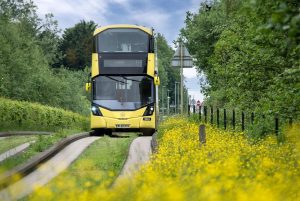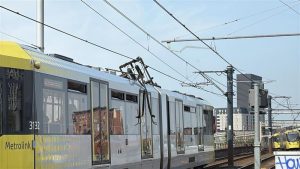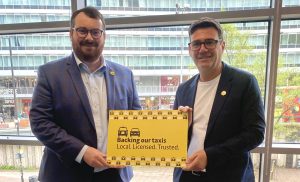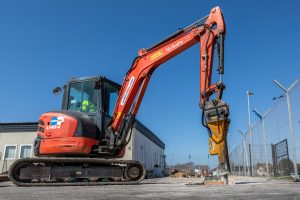New Greater Manchester Bee Network committee meets for first time
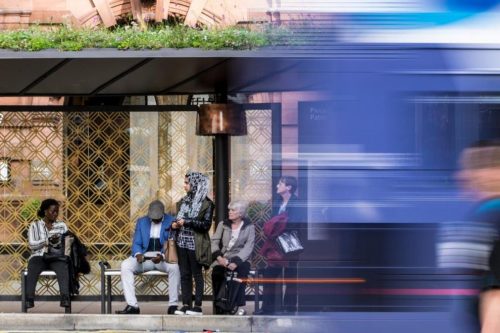
Greater Manchester Bus Strategy, Bee Network fares and products, and an extension to the Metrolink contract were all on the agenda of the first Bee Network Committee this week.
The new committee will shape the delivery of Greater Manchester’s emerging fully-integrated, London-style transport system.
It replaces the former Greater Manchester Transport Committee and will lead transport decision-making at a regional level, taking greater ownership and responsibility for the transport network.
It is made up of 16 members, including chair, Greater Manchester Mayor Andy Burnham, and vice chair Eamonn O’Brien, leader of Bury Council and portfolio holder for technical education and skills and clean air for the Greater Manchester Combined Authority.
There is also one councillor from each of the 10 Greater Manchester local authorities and four councillors appointed by the mayor for political balance.
The Bee Network, which gets off the ground from September, will bring together buses, trams, rail and active travel to transform how people travel in the city region.
Local control of the transport system means a more coordinated and integrated approach to governance will be needed – one that places accountability to local people at its heart.
Bus franchising, in particular, will change the type and number of decisions being made.
Eamonn Boylan, chief executive TfGM and GMCA, said the new arrangements would help local politicians hold the system to account: “A key part of these new governance arrangements will be an increased number of opportunities for local councillors – and the communities they represent – to influence transport policy and services in their area and better hold TfGM and other agencies to account for the operational performance of the network, for example, around safety and personal security.”
These will include opportunities for local members to inform reviews of the transport network, including regular reviews of the franchised bus network, through direct engagement and consultation.
The committee will have an important role in advising and supporting the constituent councils, on specific transport issues and will work to support the shared ownership of the transport agenda across the city region ensuring that it is informed by local priorities and driven by consensus.
However, Mr Boylan’s claim that the new 16-strong committee will increase the opportunities for local councillors to get involved with transport and hold TfGM to account is disputed.
Roger Jones, who recently retired from Salford City Council after 39 years as a councillor, said: “The GM Transport Committee used to have 33 councillors from all 10 local authorities and the majority of them were backbenchers.”
“All local authorities had to have political balance, apart from Bury. This worked well and we had good cross-party support for our policies. The opposition was led by Doreen Dickinson (Tameside).
“The Transport Committee worked well until around five years ago when the GM Mayor and leaders tried to take over. After plenty of arguments we reduced the transport committee from 33 to 22. It was a compromise.
“It worked well and backbenchers were still involved on a regular basis – holding bus/train/tram and TfGM to account.”
But he said the picture has changed following the retirement of several councillors, including himself, in May this year.
“Holding transport operators and TfGM to account is unlikely to happen in the future because the GM Mayor and leaders are already too busy and they will not be able to devote the time that we were able to spend.”
He added: “I hope the new committee is successful, I agree with the transport policies, but there will be less involvement of backbench councillors in GM than ever before.”
Mr Jones represented Salford on the GM Transport Committee for more than 25 years. He was chairman of the GM Transport Committee from 2001 to 2008.
The committee met for the first time on Thursday, July 27.

